It is quite remarkable. In a time when we are all learning to take up a zero-tolerance position against sexual abuse within our ranks (and, subsequently, outside our ranks as well), Catholics of all stripes are coming together in their opinions on one particular case. But on the side of the alleged abuser.
 Australian Cardinal George Pell, former archbishop of Sydney and, it turned out yesterday, retired Prefect of the Secretariat for the Economy as well (his mandate, which ended this month, was quietly allowed to end), has been convicted of the sexual abuse of two boys in late 1996. But, while official statements from the Australian bishops and the Vatican underline their respect for the legal establishment and their hope that the victims find some form of consolation and peace, manny commentators have expressed their doubts. Looking at the evidence available to the public (which, it has to be said, is not a complete picture as not all evidence and statements have been released by the court) many wonder if the events for which Cardinal Pell has been convicted could really have happened.
Australian Cardinal George Pell, former archbishop of Sydney and, it turned out yesterday, retired Prefect of the Secretariat for the Economy as well (his mandate, which ended this month, was quietly allowed to end), has been convicted of the sexual abuse of two boys in late 1996. But, while official statements from the Australian bishops and the Vatican underline their respect for the legal establishment and their hope that the victims find some form of consolation and peace, manny commentators have expressed their doubts. Looking at the evidence available to the public (which, it has to be said, is not a complete picture as not all evidence and statements have been released by the court) many wonder if the events for which Cardinal Pell has been convicted could really have happened.
Father Frank Brennan, who attended part of the court proceedings, has an excellent article about his questions on the case. In short, he wonders not just how the alleged abuse could have taken place when and where they did, but also why some of the very convincing arguments regarding location and the liturgical vestments said to have been worn by Cardinal Pell when he is said to have abused the two boys, were not taken into consideration. A least, they seemed not to have been.
Again, we do not known everything about the court proceedings. But what we do know has been enough reasons for Catholics on both sides of the spectrum – both those who think an orthodox cardinal like Pell can do no wrong, and those who automatically suspect him for being conservative – to wonder at the truth behind the conviction. The facts as we know them remain very hard to reconcile with the details of the allegations.
It is important to ask in how far a recollection of 20-year-old events by people who were teenagers at the time can ever be wholly accurate, and the jury must have taken this into account, reaching a verdict based on facts as well as the victims’ situation. In the end, a verdict must take their emotional involvement and the passage of time into account as well.
In the meantime, Cardinal Pell has been barred from exercising any form of ministry by the archbishop of Melbourne, where the trial took place – a standard precautionary measure – and remains in custody awaiting his sentencing, currently scheduled for 13 March. The cardinal’s legal team is appealing the verdict.
Photo credit: AAP Image/Erik Anderson via Reuters
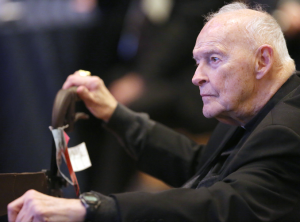 A fairly brief
A fairly brief  As the Catholic Church is gearing up for next month’s major summit on sexual abuse within her ranks, an interesting development in the Netherlands. A 74-year-old man, who was abused at the age of 13 while in seminary, is now charging the Catholic Church, the Dutch bishops and also the Pope with being part of a criminal organisation “with a goal of preventing or hindering the revelation of the abuse or the raping of minors”.
As the Catholic Church is gearing up for next month’s major summit on sexual abuse within her ranks, an interesting development in the Netherlands. A 74-year-old man, who was abused at the age of 13 while in seminary, is now charging the Catholic Church, the Dutch bishops and also the Pope with being part of a criminal organisation “with a goal of preventing or hindering the revelation of the abuse or the raping of minors”. Sister Helen Prejean, renowned American anti-death penalty advocate,
Sister Helen Prejean, renowned American anti-death penalty advocate, 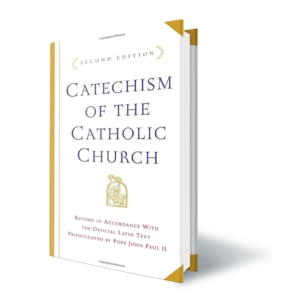 “Recourse to the death penalty on the part of legitimate authority, following a fair trial, was long considered an appropriate response to the gravity of certain crimes and an acceptable, albeit extreme, means of safeguarding the common good.
“Recourse to the death penalty on the part of legitimate authority, following a fair trial, was long considered an appropriate response to the gravity of certain crimes and an acceptable, albeit extreme, means of safeguarding the common good.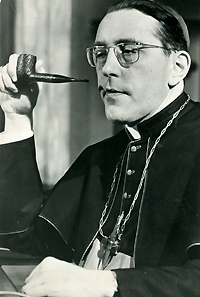

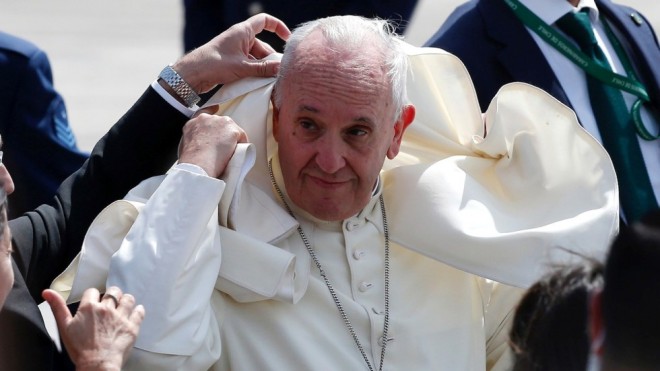
 By claiming all accusations against Bishop Barros as slander or calumny, Pope Francis has indeed taking a major step back in how the Church relates to victims. Rather than listening to what they have to say, they are being silenced and ignored. Of course, this is what the Church has until recently been guilty of doing for decades, and what many parts of society still do to this day, when confronted with accusations of abuse. While it seems as yet unclear what role Bishop Barros may have played, the claims against Fr. Karadima at least are reliable. Karadima’s case was dismissed by the courts because the statute of limitations had expired, but the allegations were deemed nonetheless credible. The Vatican sentenced Fr. Karadima to a live of penance and prayer in 2011.
By claiming all accusations against Bishop Barros as slander or calumny, Pope Francis has indeed taking a major step back in how the Church relates to victims. Rather than listening to what they have to say, they are being silenced and ignored. Of course, this is what the Church has until recently been guilty of doing for decades, and what many parts of society still do to this day, when confronted with accusations of abuse. While it seems as yet unclear what role Bishop Barros may have played, the claims against Fr. Karadima at least are reliable. Karadima’s case was dismissed by the courts because the statute of limitations had expired, but the allegations were deemed nonetheless credible. The Vatican sentenced Fr. Karadima to a live of penance and prayer in 2011.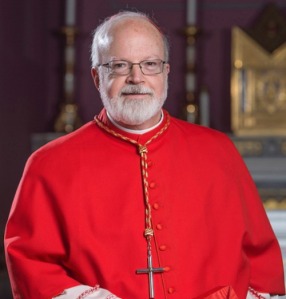 Very strong words condemning what Pope Francis said. The cardinal then continues his comments by underlining the Holy Father’s commitment to fighting clerical sexual abuse:
Very strong words condemning what Pope Francis said. The cardinal then continues his comments by underlining the Holy Father’s commitment to fighting clerical sexual abuse: Flyers, an online petition, a banner in front of his residence, security measures at Mass… What has Bishop Georg Bätzing done to warrant such an outpouring of protest? Well, according to
Flyers, an online petition, a banner in front of his residence, security measures at Mass… What has Bishop Georg Bätzing done to warrant such an outpouring of protest? Well, according to  A Belgian priest of the Diocese of Bruges is being sued for not acting on information shared with him in a confession. The case has the potential of becoming a precedent on how society and law deals with the seal of confession, as well as the professional secrecy as it exists in medical professions, and also highlights once more what confession actually is.
A Belgian priest of the Diocese of Bruges is being sued for not acting on information shared with him in a confession. The case has the potential of becoming a precedent on how society and law deals with the seal of confession, as well as the professional secrecy as it exists in medical professions, and also highlights once more what confession actually is. Yesterday Pope Francis appointed five new members of the Supreme Tribunal of the Apostolic Signatura, the highest court of law of the Catholic Church. In addition to three cardinals and an archbishop, one of the new members is Bishop Jan Hendriks, auxiliary bishop of Haarlem-Amsterdam. He is also the only new member who does not reside in Rome or has been a member of the Signatura before. He will exercise his new duties in addition to his current ones.
Yesterday Pope Francis appointed five new members of the Supreme Tribunal of the Apostolic Signatura, the highest court of law of the Catholic Church. In addition to three cardinals and an archbishop, one of the new members is Bishop Jan Hendriks, auxiliary bishop of Haarlem-Amsterdam. He is also the only new member who does not reside in Rome or has been a member of the Signatura before. He will exercise his new duties in addition to his current ones.